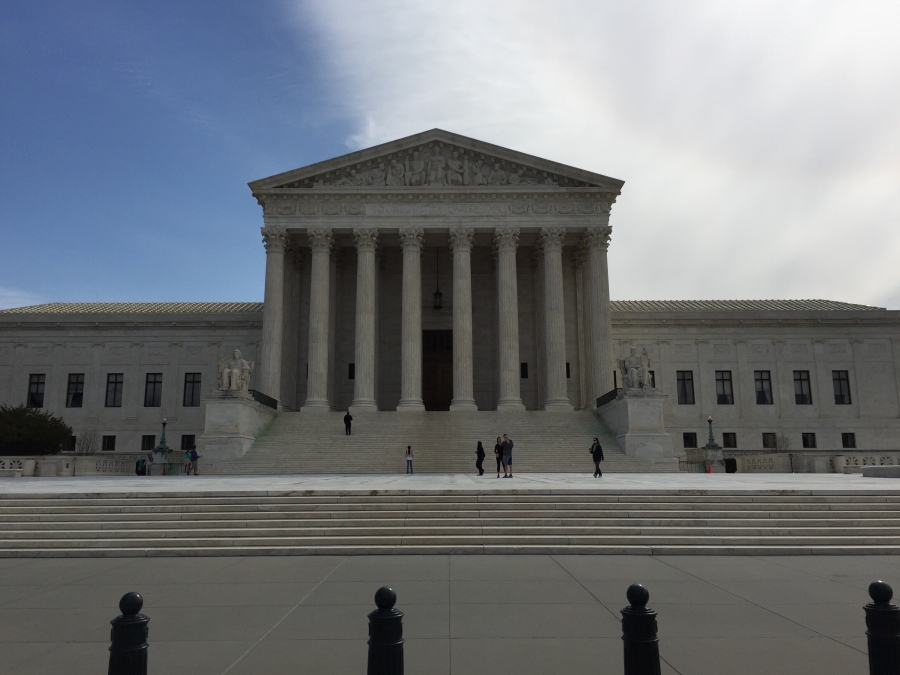
- Details
- By Chuck Hoskin Jr
Guest Opinion. For the second time in less than two years, the Supreme Court spoke clearly: The United States must keep its treaty promise to Cherokee Nation. Now, let us move forward.
At issue in the McGirt case was whether promises made in 19th century Indian removal era-treaties were broken by Congress when it imposed the new State of Oklahoma over tribal reservations. The Court ruled in July 2020 that Congress did not break the promise in the case of the Muscogee (Creek) Nation’s reservation. Subsequent court cases applied the ruling to tribes with substantially similar treaties: Cherokee Nation, Choctaw Nation, Chickasaw Nation and Seminole Nation. The ruling was recently extended to the Quapaw Tribe.
Want more Native News? Get the free daily newsletter today.
McGirt had immediate implications for criminal justice across essentially half of Oklahoma. Depending on the facts of the case, criminal cases arising within these reservations involving citizens of federally recognized tribes are under tribal or federal, not state, jurisdiction. Although one aspect of McGirt is still under review by the Court, the major question in McGirt has been answered twice at the highest level. Now we need to move forward.
Cherokee Nation has committed tens of millions of new dollars aimed at building the country’s best criminal justice system. We are prosecuting thousands of cases, bringing justice and protecting victims. We have over 100 agreements with local governments to prevent disruption in public safety and traffic enforcement.

Oklahoma’s Congressional delegation is willing to work with Cherokee Nation in thoughtful ways to make McGirt an enduring foundation for respectful cooperation between tribes and the state. I have asked Congress to give Cherokee Nation the tools to negotiate even more intergovernmental agreements, while keeping 100 percent of McGirt in place.
Most leaders in this state are interested in making McGirt work. Just about every leader involved in this issue rolls up their sleeves with the understanding that we should work alongside each other for the common good. My experience across 15 years in elected or appointed office in Cherokee Nation is that almost every local, county and state official understands that we go further by working together.
Nearly all leaders across philosophical and partisan lines behave like we are in the 21st century, where cooperation is key. Just a few leaders behave like we are in the 19th century, where the answers to the “Indian problem” were things like forced removal and broken promises.
Oklahoma Governor Kevin Stitt, Attorney General John O’Connor and a few other regressive leaders are in a lonely minority. Governor Stitt and Attorney General O’Connor begged the Court to reverse itself and have the United States break, rather than keep, its promise to the tribes. For the second time, the U.S. Supreme Court told them no. It is sad that Governor Stitt and Attorney General O’Connor cannot seem to imagine a world in which the state and the tribes coexist. They are nearly alone in their views. They are on the wrong side of history.
Oklahoma and the tribes must decide how to move forward. I will fiercely defend the Cherokee Nation’s sovereignty, whether from attacks on our hunting and fishing rights to downright petty moves like the Governor cancelling our leases at state-tribal highway welcome centers. But the most important point of focus for all of us right now is this: Let us find a way to move forward, together.
Let us recognize that the small-minded view that tribes and the state cannot co-exist is in its death throes. This moment calls for cooperation and leadership from tribes and the state. We can build criminal justice systems that are the envy of the country. We must continue giving Oklahoma a regional and national edge in economic development. We all have an interest in funding investments for the common good. We can manage and protect natural resources towards shared goals. On so many issues, we have so much to gain from working together.
Oklahoma and Cherokee Nation will not always agree. When we disagree, let us negotiate in good faith to find common ground. Let us be optimistic about what we can collectively achieve.
When I took office in August 2019, I was optimistic about the future of state-tribal relations. Since then tribes have been met by stunning hostility from Governor Stitt. The rest of us can move beyond his narrow views and remain optimistic. At my Inauguration I said, “The Cherokee Nation is the best friend the State of Oklahoma ever had. We just need to be treated with respect.”
I still believe that. So, let us move forward, together.
Chuck Hoskin, Jr. is the principal chief of the Cherokee Nation.
More Stories Like This
The Lie We Keep Telling About Wounded KneeAnother Weapon of Mass Destruction
Colorado cannot heal until it confronts Sand Creek honestly
Native American Mothers Deserve to Live
Technology Rooted in Tradition is Strengthening Cherokee Nation
Help us defend tribal sovereignty.
At Native News Online, our mission is rooted in telling the stories that strengthen sovereignty and uplift Indigenous voices — not just at year’s end, but every single day.
Because of your generosity last year, we were able to keep our reporters on the ground in tribal communities, at national gatherings and in the halls of Congress — covering the issues that matter most to Indian Country: sovereignty, culture, education, health and economic opportunity.
That support sustained us through a tough year in 2025. Now, as we look to the year ahead, we need your help right now to ensure warrior journalism remains strong — reporting that defends tribal sovereignty, amplifies Native truth, and holds power accountable.
 The stakes couldn't be higher. Your support keeps Native voices heard, Native stories told and Native sovereignty defended.
The stakes couldn't be higher. Your support keeps Native voices heard, Native stories told and Native sovereignty defended.
Stand with Warrior Journalism today.
Levi Rickert (Potawatomi), Editor & Publisher
